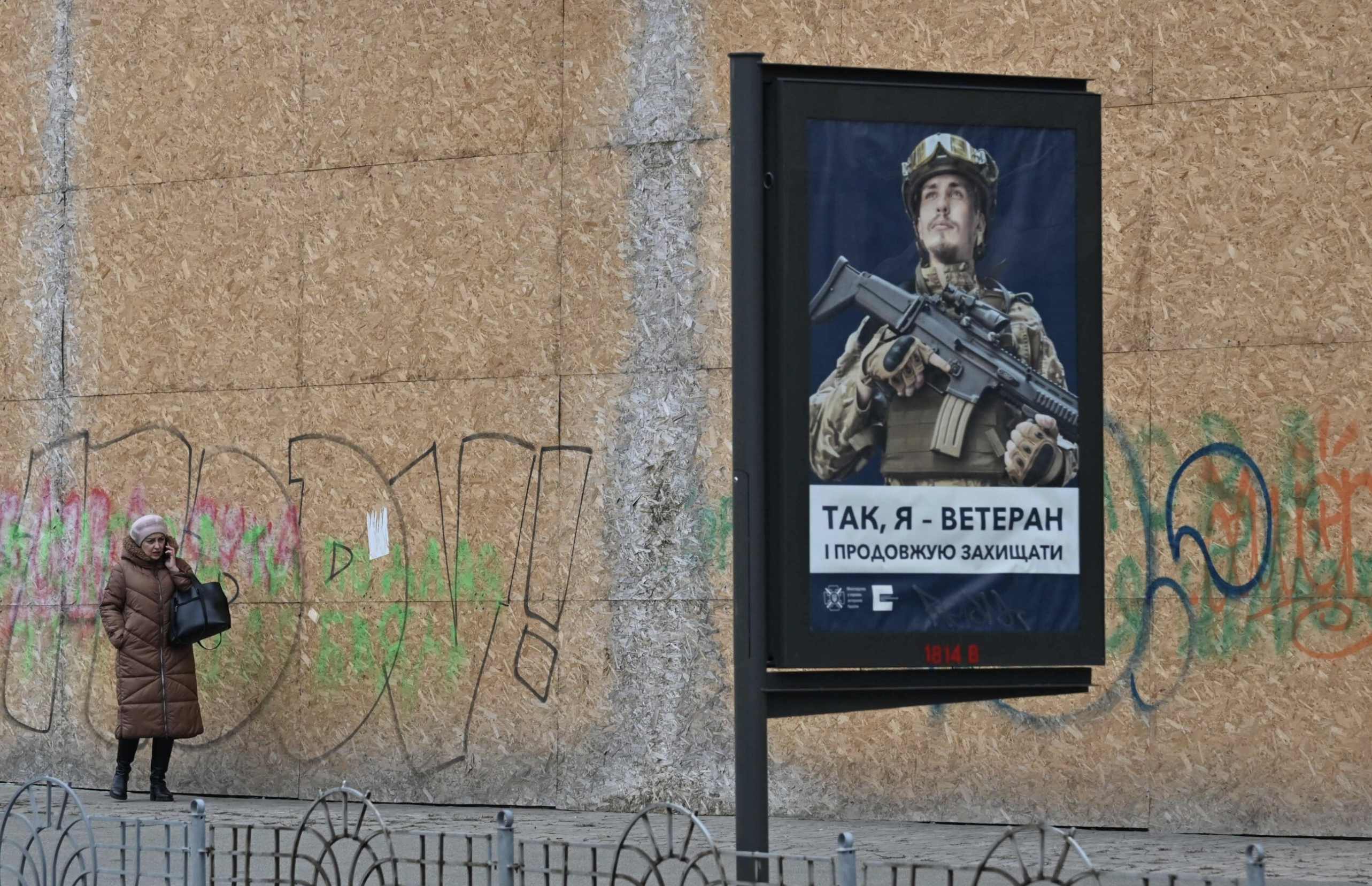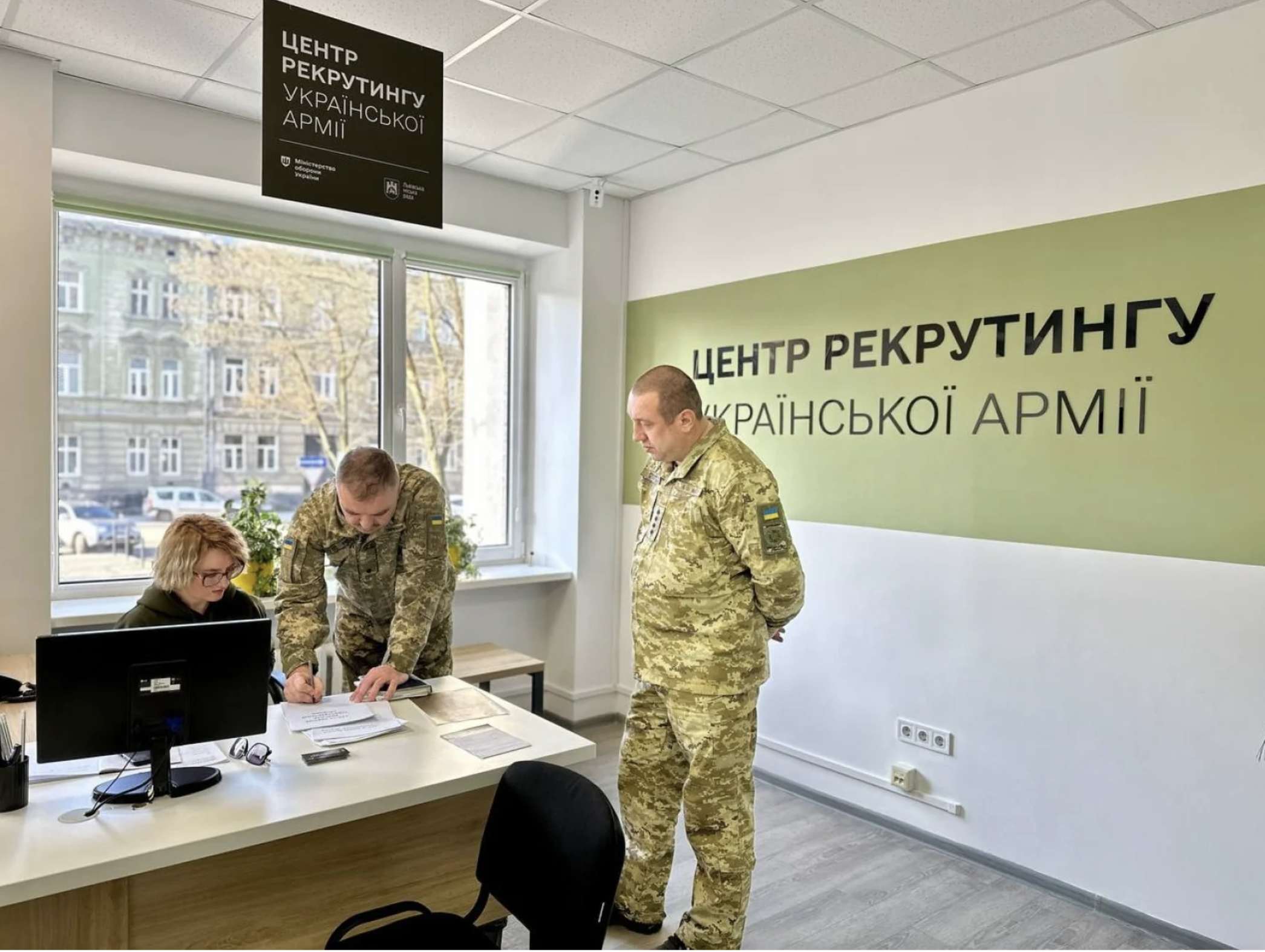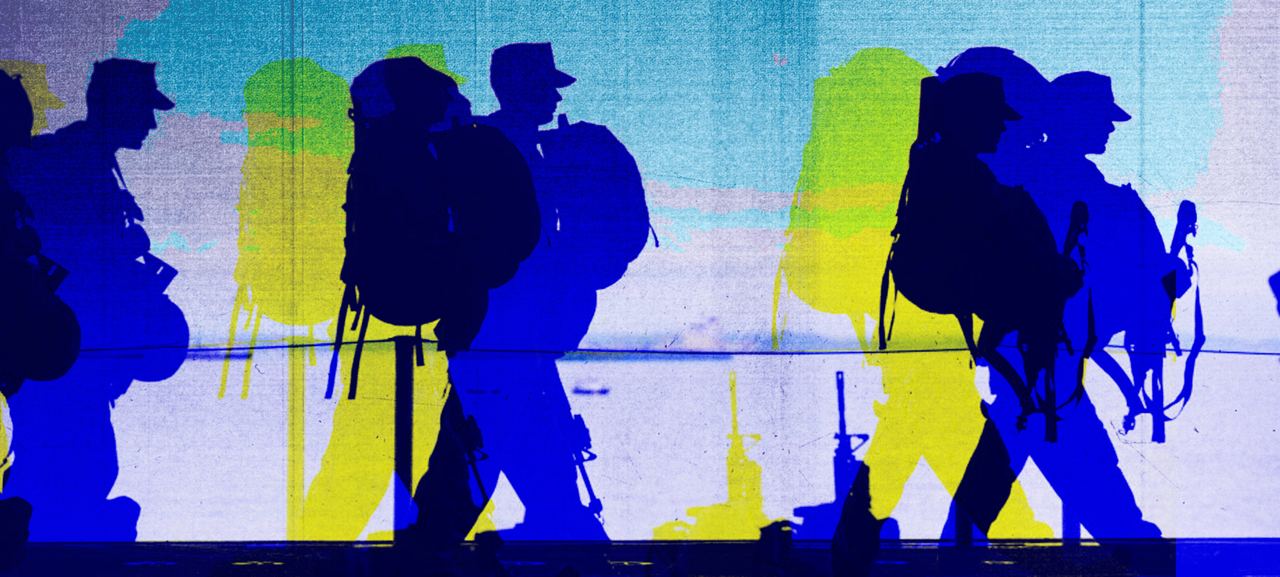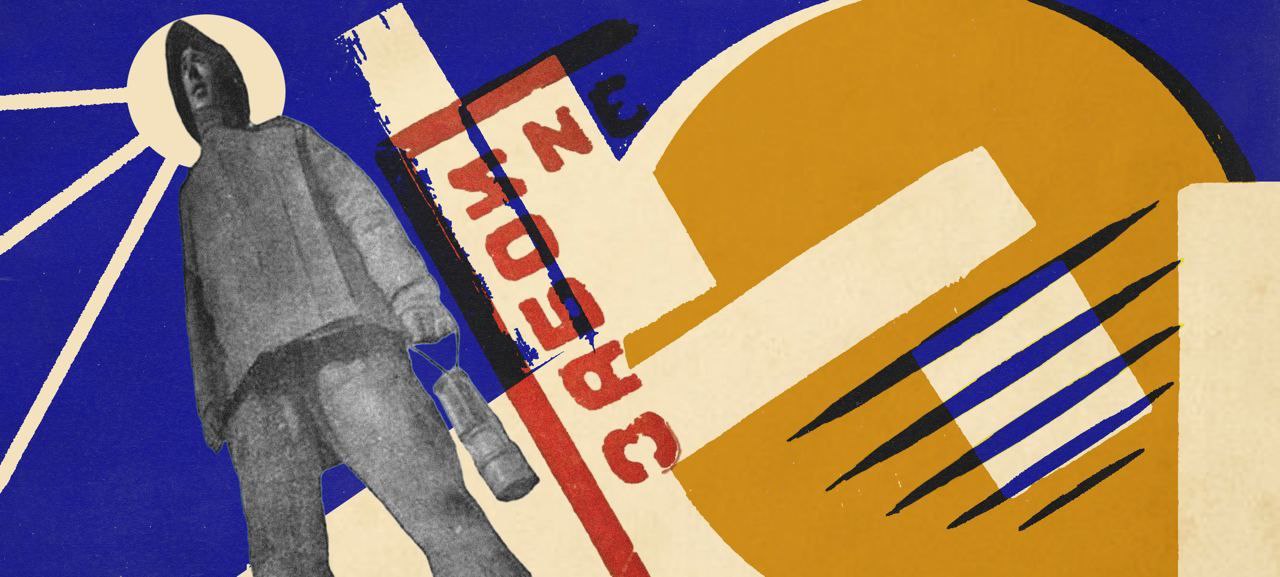By the end of March, it was a year since I chose to leave my teaching and library work for the service in the Armed Forces of Ukraine. Therefore, I find it worthwhile to reflect a little bit on my personal "betrayals" and "victories", advantages and disadvantages, in other words to sum up the year.
Note No. I. An unforgettable year
From the very beginning, I should mention that I had no experience of army service, the military department had passed by me during my student years, and I had a deferment as a school teacher for the entire first year of the full-scale war. I had mobilized voluntarily, as a member of a newly formed mechanized brigade; I spent eight out of twelve months in the combat zone in different parts of the frontline.
Like some other people, I was driven to mobilize by some sort of myth about a counter-offensive. Of course, I understood that the war would continue, but I hoped we would reach some radically new frontiers within six months. So, I wanted to be part of these truly historic events. Actually, I once visited one of the most advanced positions of the Ukrainian Armed Forces in the so-called Shakhtarsk direction, located 10 kilometers from the previous contact line, and which is now again captured by the enemy.
In the first place, this year has given me an unforgettable experience of participating in a full-scale war, which (fortunately?) is not a thing that every generation has to witness. Like so many other lads, it was my childhood dream to take part in a real gunfight (and desirably stay alive). Dreams do come true, as it is said, yet unfortunately, not for everyone with a happy ending. Once upon a time, I told my wife it is morally and physically easier to spend a night under mortar fire than to be with a sick child who remains feverish. "You don't know what it's like to sit under the mortar fire," my wife reasonably noted back then. Now I can state with confidence that indeed it is true, it is easier.
Among other advantages of army service, I could mention improved physical condition (although in my case, I had less physical activity in the army than in civilian life), free trips to various unexplored parts of Ukraine (mostly within the former Wild Field) and, of course, money. In those units where adequate and competent people are in charge of financial support, military service remains a rapid socio-economic lift for both the precariat from the suburbs and the traditionally low-income intellectuals.
And yet, with all these advantages, I still can't decide whether the decision to mobilize was a mistake. The main and overwhelming disadvantage, which negates almost all the advantages, is separation from my family and children. Let the truckers and sailors forgive me, but I have never wished for such profession. The uncertainty of how long the separation will last makes it even more unpleasant. Obviously, draft law No. 10449 will not solve the issue of demobilization, as the possibility of being discharged after serving an already enormous 36 months is made dependent on additional obscure conditions.
I have become much less sensitive to human grief and injustice. When they spread across the entire army community; when there is simply no time to recall the names of socially disadvantaged inductees who are ground and left to rot in the field fortifications by another commander, assigned to an assault sub-subunit – this is when empathy gradually atrophies. All one can do is try to rationalize the orders of the higher command to prevent new losses.
Among all the thousands of troops, I found myself in an extremely "cozy" and welcoming surroundings, with no excessive masculinity or compulsion, and yet my own motivation to defend the country was affected by what I saw in the army. As one of my comrades-in-arms accurately pointed out, our success in 2022 was due to the fact that there are a few more people in our army who do care, but only a few more. Many of these people are already rotting in the field fortifications. Others are assigned to do meaningless paperwork that might be done well, but that is impossible to love.
Note No. II. Who owns the life of a citizen?
Based on what I have seen, heard and experienced, I would like to elaborate on the issue that is currently headlining in public debate in Ukraine. While at the beginning of the full-scale invasion there were queues of volunteers at the "military enlistment offices", by the end of the second year of the war it is a tragicomic confrontation between the so-called "evaders" and the employees of the military enlistment offices, which has become one of the most acute social problem. Why?
This question, among others, is also raised by the famous Ukrainian philosopher Andrii Baumeister, who brings it into the context of discussion about the limits of legitimate violence used by a democratic state, as well as the differences between the statuses of "subject" and "citizen". Despite all the ambiguity of Baumeister's speech, it is almost impossible to disagree with him in this particular aspect: during the year and a half of war, something has happened inside the Ukrainian society itself, not just in the operational situation at the battlefield.
As someone with a degree in history, I would note that broad-scale (or even total) war with the mobilization of hundreds of thousands or even millions of people is a relatively recent phenomenon. Oleksandr Schulman, who wrote for an Army Inform a short but informative article dedicated to past mobilization practices, starts with the rather dubious statement that "military duty appears when the state appears", and then gives various examples from the early nineteenth century and later on. The examples taken from earlier times are clearly not related to mobilization in the modern sense of the word, but rather to the professional military class of knights, gentry, nobles, or in other words, bellatores according to the terminology of the European Middle Ages. These people, whose number, together with their family members, never exceeded 10%, had a legally superior status that was inherited and to which the features of the Divine Order were attributed[1]. The only notable exception could be the mobilization measures in the Roman Republic, which in some respects resembled a modern society.
Throughout the Enlightenment, while the idea of people's equality before the law was spreading across Europe, one of the key French intellectuals of that time, Jean-Jacques Rousseau, in his famous treatise The Social Contract, or Principles of Political Right, formulated a logically flawless but extremely frightening statement:
Furthermore, the citizen is no longer the judge of the dangers to which the law-desires him to expose himself; and when the prince[2] says to him: "It is expedient for the State that you should die," he ought to die, because it is only on that condition that he has been living in security up to the present, and because his life is no longer a mere bounty of nature, but a gift made conditionally by the State[3].
Despite the fact that Rousseau is known as a fairly liberal philosopher, this statement seems to be at the very heart of the odious and even bloody actions of regimes that have called themselves "democratic", "communist" or "national socialist".
Do we really accept, by electing legislative and executive authorities today, that our well-being, our bodies and our very lives are gifts of the state that it can arbitrarily dispose of?

A woman talks on her phone as she walks past a boarded-up shop window and a banner with a picture of a Ukrainian soldier with the words "Yes, I am a veteran and I continue to defend my country." Kyiv, January 30, 2023. Photo: Serhiy Supinsky / AFP
Note No. III. Perspectives on Ukrainian mobilization
In the context of the discussed issue, there is only one way to reject this statement: to undermine the link between mobilization and death (injury) that exists in public opinion today. This link, of course, did not occur out of nowhere. Over the past two years, the full-scale war has affected every citizen of Ukraine in one way or another, and almost everyone knows someone who was killed or seriously injured in the fighting. Rumors about arbitrary commanders, poorly planned operations and senseless orders are spreading freely in the rear. These rumors do not arise out of thin air either, although their absolutisation is meaningless and simply wrong, and the idea of the allegedly widespread nature of these phenomena in the Ukrainian army is constantly used as a horror story by enemy propaganda.
In order to undermine this link (it is still impossible to break it completely), the recruitment system should be reformed (which is slowly happening in some units); combat training should be guaranteed; and information about the actual number of non-combatant specialities in the army should be shared (so that they remain used in accordance with established duties!). Nevertheless, I believe that the most effective way to rationalize and humanize military affairs would be to establish fixed time limits for the service of those mobilized. Counter-arguments such as "no one can predict what the situation at the front line will be like in x amount of time" make no sense at all, since not all military personnel want to be demobilized, and a significant number of unmotivated and unprepared recruits will not improve the situation at the front line (unless we follow the occupants' horrendous practices of "meat assaults").
On the other hand, these problems are even more complex, since if a motivated and well-trained person joins the army through a humane recruitment center only to be met by a recruitment officer with a "go-go" mindset or an alcoholic sergeant, the recruit's motivation (and sometimes even training) will soon be lost. Therefore, relations within the army also need to be reformed, which cannot always be regulated by law or "statute".
In addition, there are factors that literally bring the issue of mobilization to a dead end.
Firstly, there are indeed cases of arbitrary behavior committed by employees of the military enlistment offices that have been video recorded. If these are not deliberate provocations by some enemy subversive groups aimed at discrediting Ukrainian servicemen, I don't know what to call it. During my recent holiday in my hometown of Odesa, when I walked down the street or took public transport in my military uniform, I could literally feel the suspicious glances of passers-by: "Are you handing out call-up papers?". In contrast, having just come from the edge of the burning spoil tips and having to return there soon, makes a terrible impression. The well-known writer Artem Chapai (known, among other things, for his sincerely folkloristic views) notes that the employees of the military enlistment offices often are soldiers who have been wounded and discharged from combat units. How this can be an excuse (I'm afraid to say "explanation") for the brutal actions of some "call-up paper deliverers" or for the mobilization of epileptics[4] is hard to imagine. Secondly, there are some mass media and "opinion leaders" who literally demonize "evaders" – ordinary people who, under the influence of disordered flows of information, rumors, and the experience of their friends, are afraid to change their civilian life into trench and camp routines.
The aforementioned Artem Chapai also offers another, more serious argument for mass mobilization, although only by legal means: if we live in a democratic country, if we are equal before the law, then the burden of military service should fall equally on all, at least eligible, male population. However, this argument presupposes several important preconditions: the definition of clear and adequate duration of service (which, to be noted, is strongly advocated by Chapai himself) and the use of personnel strictly in accordance with their assigned duties (should everyone also share the fate of aerial reconnaissance and clerical staff sent to assault?) In other words, the army should be guided by the well-known principle of "from each according to his ability, to each according to his needs" in its work with personnel, and should find an adequate approach while ensuring that people with different knowledge and abilities are given a proper place to serve, or else that only those who are capable and willing to fight should do so.
This whole tangle of contradictions is held together by the fact that we do not know the actual needs of the Ukrainian Defense Forces for personnel. At the end of December 2023, there was a statement in the media about the "need to mobilize 500,000 citizens", but former Commander-in-Chief Valerii Zaluzhnyi denied that such a number was presented to the political leadership of the country. The plans for recruiting the army are a military secret, no matter what. However, within the army, we know for sure that there are many people who should have been dismissed long ago, discharged due to health reasons. All those wounded, injured, and traumatized people who are recognized as "restrictedly fit" (at best), who can no longer perform combat missions, and who lack the qualifications or abilities for headquarters tasks. They are considered as "out of staff" for months and sit in rear "distribution centers" with reduced salaries and with no possibility to move freely or find another normal job. Why should these people who have already sacrificed their health for the country be kept in the army, while depriving them of the opportunity to support their families and the "economy" at the same time? What's the reason to exclude even more workers from labor relations if there would be nobody to replace their shortage?

The first in Ukraine recruitment center of the Armed Forces which is a pilot project of the Ministry of Defense and Lviv City Council, Lviv, February 2024. Photo: Lviv Regional Recruiting Center
One way to handle this latter point could be to work alternatively to military service in the defense industry or other support industries that strengthen the country from the rear. At the same time, this would help to reduce the unemployment rate, which has increased due to the full-scale invasion. But is there political will to do so? Is it really easier to mobilize untrained soldiers than to find employment for trained and experienced workers? These questions remain open.
The last brick in the mobilization process could be a reorientation of Ukrainian propaganda from demonizing and dehumanizing the enemy (along with a large part of fellow citizens!) to a clear image of what we are fighting for and who we are fighting against. Russian imperialism indeed has monstrous features that could only maniacs sympathize with: the integration of oligarchic capital with the security services, arbitrariness of security forces, censorship of the Internet, paranoid fixation on figures and events of the past, the desire for a "strong hand," etc. If a citizen realizes that the Ukrainian Armed Forces are fighting for a democratic system, pluralism of opinions and values, and equality at least before the law, he or she will not be affected by the disempowering thought "here it is the same as there, so what's the point of fighting." In February-March 2022, millions of ordinary men and women, raised on the same Soviet comedies, "Russian rock" or rap, jokes about Estonians and Chukchis, rose up to defend their homes and families against the Kremlin's brutal aggression. Ordinary collective farmers, delivery men and metallurgists, not indoctrinated by "Donetsk" nationalism, were ready to cut and strangle the occupiers simply because they had brazenly invaded our country. And, according to my own private communication, many people hoped that Ukraine would radically change under the influence of this "extreme stress" and get rid of the corrupt kleptocracy (and possibly the oligarchy too). It did not happen as expected. Instead of enabling real socio-political change, mobilizing for meaningful positive values such as home, freedom and equality of citizens, they are trying to mobilize through fear, while accusing them of insufficient commitment to the principles of "armbelive".
I do realize that not everyone will like the thoughts I have outlined, both military and civilians. After all, I don't like this public discussion myself. However, it is about a painful issue for many people. My personal disappointment in the army's realities came after the first 2–3 weeks of service, then military routine entered a kind of steady state, and then anxiety and irritation reappeared (fortunately, it was just about vacation time). Now I even see some prospects in the service, perhaps, however, this is just a survivor's delusion. I would like to hope that this year of service will be the last, but it is obvious that for this to happen, Russian imperialism must lose its teeth. And a precondition for this is to overcome the most acute internal problems in Ukrainian society, which sometimes contribute to a pessimistic attitude rather than the operational situation at the front.
Footnotes
- ^ Яковенко Н. Нарис історії середньовічної та ранньомодерної України. К.: Критика, 2006. С. 62.
- ^ Le Prince in the original text is an explicit reference to Machiavelli's treatise; in this case, it can also be understood as a collective subject of legitimate power – a parliament, a government.
- ^ Rousseau, J.J. (1762) The Social Contract. Trans. by Cole, G.D.H. In: The Public Domain, Book II, 5.
- ^ Besides, I personally met mobilized epileptics in the army.
Author: Valentyn Dolhochub
Translation: Anna-Maria Kotliarova
French translation: Entre les lignes entre les mots
Cover: Kateryna Gritseva



